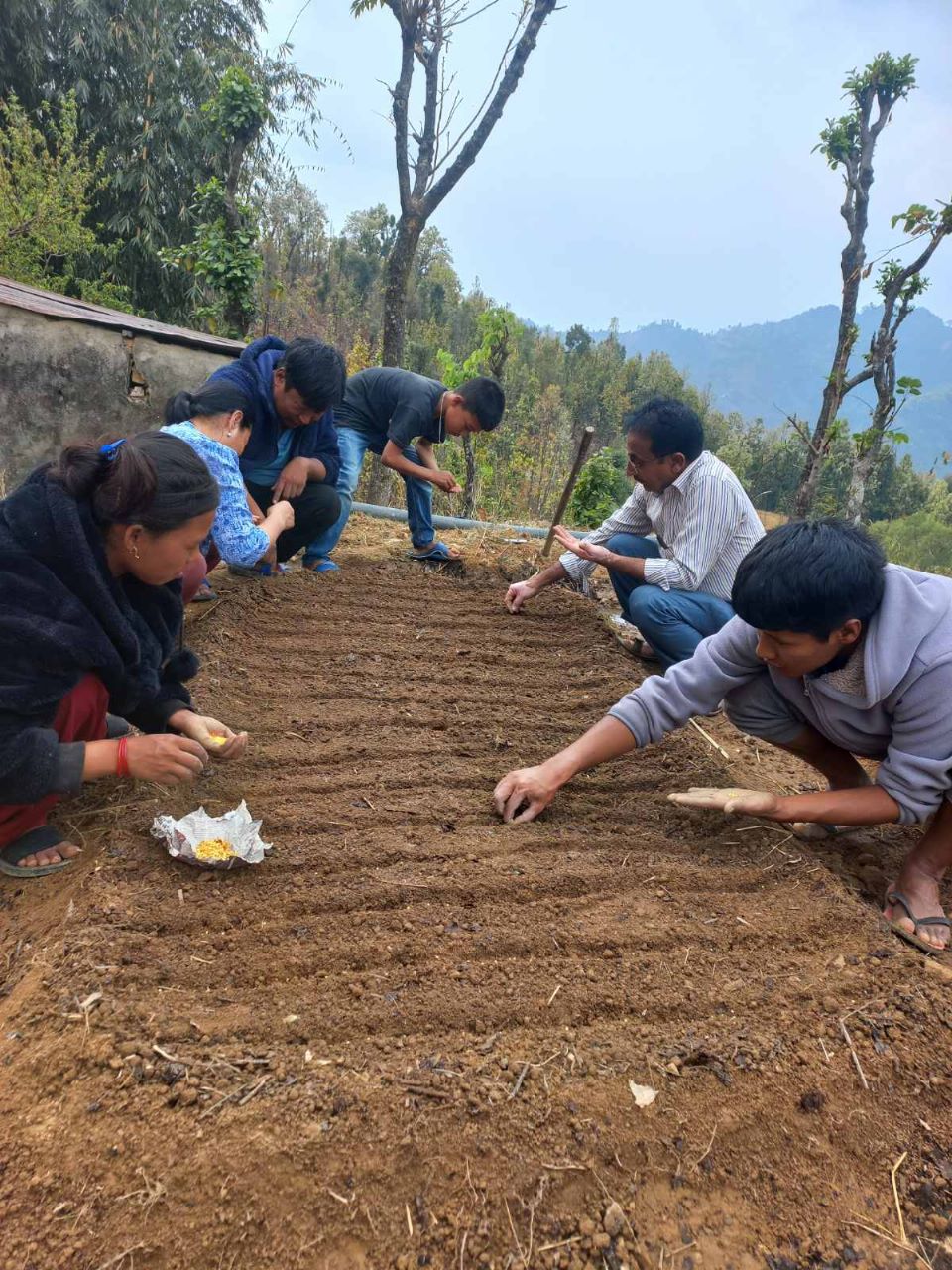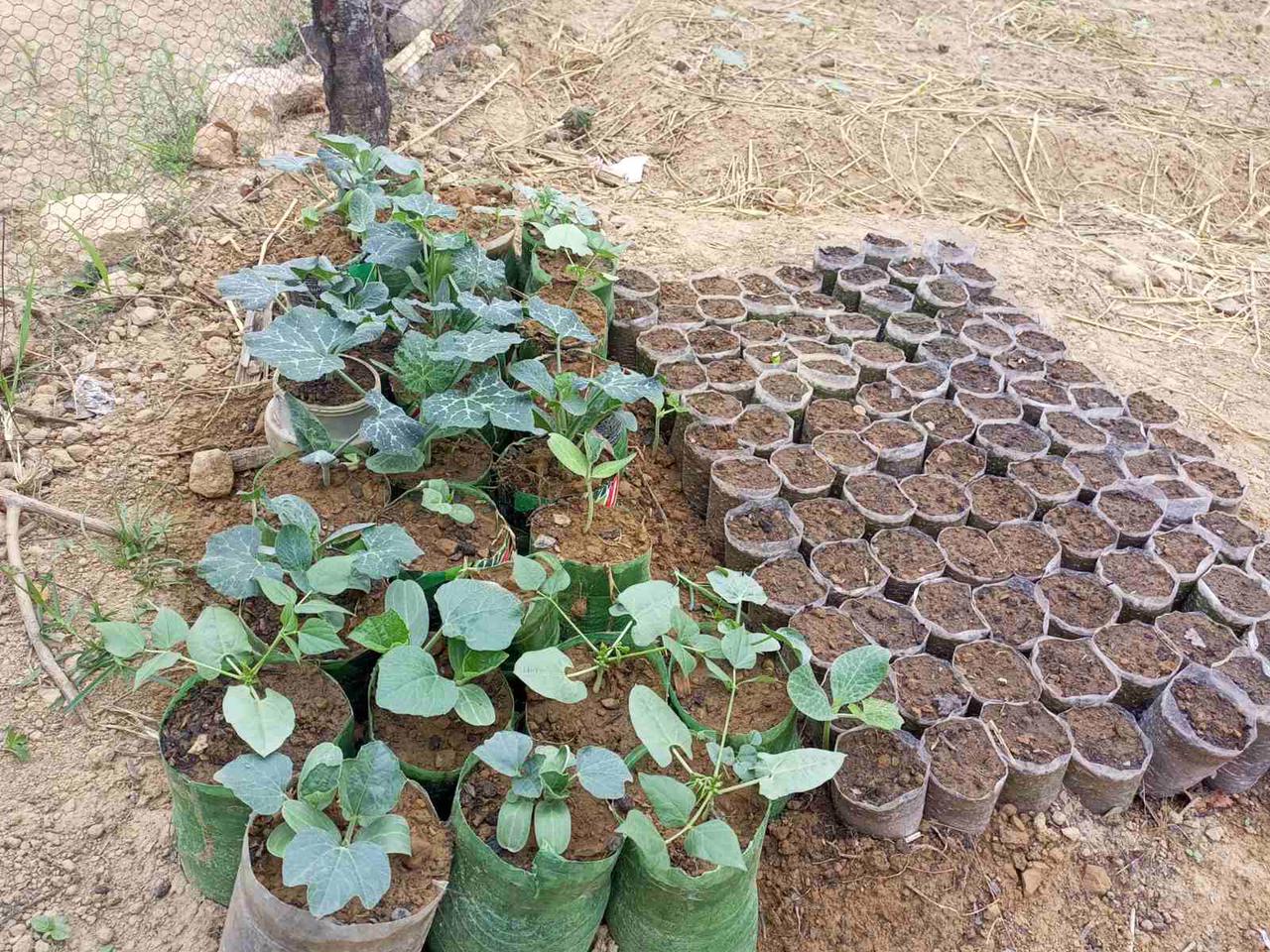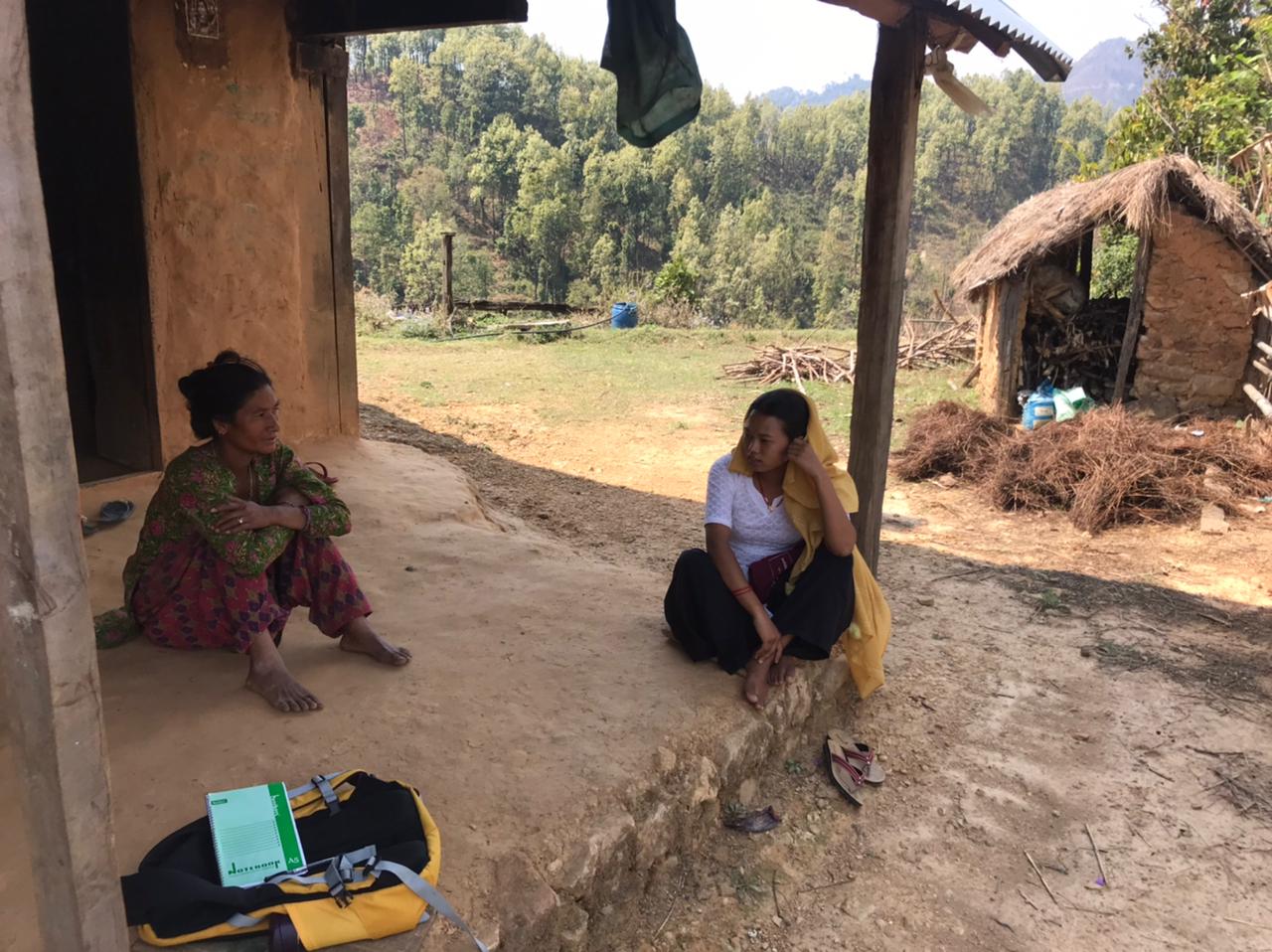
May 2023
The planting season has begun in Nepal. And so also in Makwanpur Gadhi schools. Since January, the Nepalese Centre for Educational Policies and Practices has been working there with the teachers, parents and students of six government schools, in a brand new initiative. BIKAS supports CEPP in their operation, which aims to improve the quality of primary education in these remote schools and to encourage solidarity within villages. CEPP has named this project, which is a continuation and extension of its support to Kalidevi School in Chapp village (see https://bikas.org/EN/From_school_to_school) PACE Gadhi: Parental Awareness for Children and Environment in Makwanpur Gadhi. Makwanpur Gadhi is a region south of Kathmandu and northeast of Hetauda, one of Nepal’s larger industrial cities, in the transition between the Terai plain bordering India and the high mountains of the Himalayas.

Living conditions are very different according to the geographical peculiarity of a region. Therefore, the Nepali government has now chosen to add a ‘local’ component to school education as well and to teach the children about their own environment. CEPP has found that establishing school vegetable gardens brings the community together. In Makwanpur Gadhi, Rishi Adhikari, permaculturist and Teeka Bhattarai’s long-term environmental associate, is responsible for this component of the project. Growing a wide variety of vegetables, in an ecological manner (i.e. without fertilisers and pesticides), gives hope for a green and healthy future. By working together for the vegetable garden, teachers and parents come to respect each other for their expertise and work ethic. For the children, it is a hands-on experience about agriculture, biology and ecology. And participating parents get planting material to take home to make their family's diet more varied and balanced.

Between 2010 and January 2020, more than 100 students from Flemish colleges did internships in the schools CEPP works with. Students from Luca School of Arts in Ghent, Artevelde Hogeschool in Ghent, Odisee Hogeschool in Brussels, Erasmus Hogeschool in Brussels, the Department of Architecture at KULeuven brought their enthusiasm and practical knowledge to Nepal while simultaneously broadening their view of the world and discovering new perspectives on education. Nepalese pupils and teachers and Flemish students inspired each other and developed a network of solidarity. That exchange fell silent due to the pandemic, but in April 2023, six teachers from Luca School of Arts went on another prospecting trip to Nepal. In the picture, they discuss in the small amphitheatre attached to Kalidevi School with parents, teachers and CEPP staff members to see if the conditions are favourable to organise placements again. An exchange 'from school to school'!

Nepali New Year falls in April, and April also means the start of the new school year. Every year, the government organises a campaign to motivate rural parents to send their children to school instead of making them work in the fields only. Parents are well aware of the importance of education, but schools often offer too little quality: children have to learn by heart and the subject matter does not take into account changes in life and society. Linking school education with everyday life is an innovation that should also improve the lives of families.

Aadi is a new member of CEPP staff too, hired as a 'nursery and parent mobiliser': she is co-responsible for the plant nursery that supplies schools and households with planting material. Here she is on a home visit. She goes 'from house to house', to talk to all the parents of each of the six villages in this new area of operation about their ups and downs and to increase their involvement in the school. The link between the school and the community is essential. Most better-off people take their children to private schools. Even the government is not so much interested in the free public schools as their own children also attend these for-profit private schools. Without the participation and control of parents, the quality of public schools may continue to deteriorate. Most of the people in Makwanpur Gadhi are Tamang: they have their own language and distinct culture. CEPP staff members who will be living and working in these villages belong to the same ethnic group, which encourages contact and facilitates cooperation.
At BIKAS, we are happy and curious now that this new project is starting. Would you like to help make it a success, to support the villages and schools in their development, for the benefit of the children? We appreciate your contribution on account number BE32 2200 7878 0002 of Bikas npo, with the mention 'From School to School'.
Paul Beké and Carine Verleye - thank you Chhiring and Teeka for your input.
